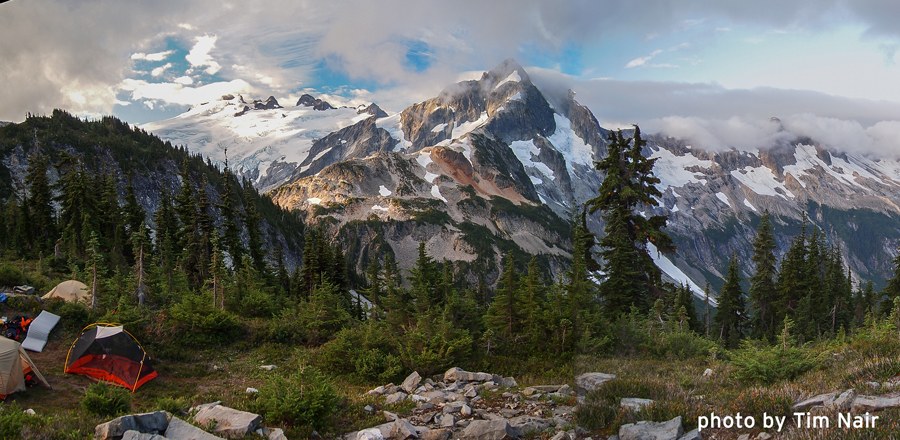
by Steve Scher, UW teacher and former KUOW host
My generation thought it had a pretty good notion of what stewardship meant the first time we got a look at the pictures of earth taken by the astronauts.
Seeing our blue pearl floating in the darkness sent many baby boomers on a quest to heal the planet.
Too bad we made such a muck of it.
We gave the world Earth Day, as if one day to honor the earth makes up for all the days we don’t. We made pledges to save [insert most beloved creatures or landscapes here]. We helped push through the clean air act, the clean water act. Even Nixon got into the act, authorizing the Environmental Protection Agency.
We do have cleaner water, but talk to the folks in Flint about how far that extends. We do have cleaner air, except for those places where poorer children breathe in poison. As for the EPA, well you can protect some environments, but some, it seems, can be bought and sold to the highest, or more likely, the most politically connected bidder.
Please, excuse my glib cynicism. After all, I am the guy who thinks it always makes sense to protect as much wild as we can, even at the risk of stifling some job-creating scheme. Heck, I think snail darters and untracked spaces are what make life wonderful.
The skeptics among us might note that I live in a big city, surrounded by all sorts of wonderful stuff that got built out of land and minerals and forest I now holler to protect. The skeptics among us have a point.
There are billions of us traversing this blue orb, praying that stewardship simply mean succor for mothers and sons trapped in famine, war, and calamity.
A human notion, stewardship used to be linked to human economics. Back in Roman days when Greeks and Hebrews dickered outside the temples, the steward was the moneylender, helping himself as he helped others. Later Christian philosophy linked the notion back to Old Testament entreaties to care for the meat of the lord and the land that produced the lord’s meat. In the 19th century, protestants called on their flocks to steward the congregation by donating money and time to build strong the ramparts of faith and spread far the good word around
the globe.
Seeing that globe spinning in space kindled the modern notion of stewardship. The baby-boomers breathed it in and spread it around. We didn’t invent it of course. Nor did John Muir. People have long felt that we live to pass on those things we ourselves have benefitted from.
But that isn’t just snow-capped peaks or rare and pretty butterflies.
Many see their economic efforts as the pinnacle stewardship, turning hard labor and new ideas into tall buildings and rumbling factories.
It’s a matter of perspective. The pictures from space of the earth at night show the bright web of electric power spreading across the dark planet. Is this the promising glow of prosperity or flames devouring the living planet?
Here lies the conflict. You want to call yourself a steward by leaving a field fallow. I want to call myself a steward by turning that field into food for many.
Can we do both for much longer? It seems unlikely. But that is the only possible outcome. We know too much about our blue globe to think we can follow one path but ignore the other. Who will tell the hungry to starve? Who wants to kick over the tangled skein that supports life?
Stewardship is tough. Who knew it could be so complicated?
Plenty of us.
The trade-offs are painful. Utopian technologies are distant. Reality reveals itself with each day’s headlines. The great barrier reef, once the largest living organism, now 80% dead. In-bred cheetahs hunker in zoo’s while their habitat is devoured. People are battered between drought and deluge.
From our vantage point in space, we can barely discern the paths forward. Yet, scientists gather seeds. Students seek solutions. We plant trees, we help elephants, we build houses. We even, on occasion, listen to one another.
 Steven Scher
Steven Scher